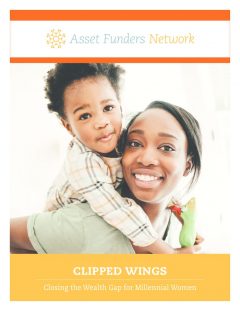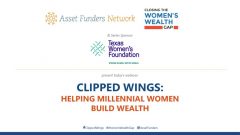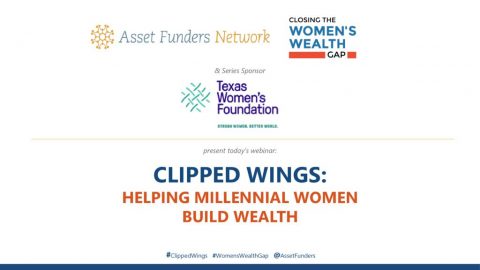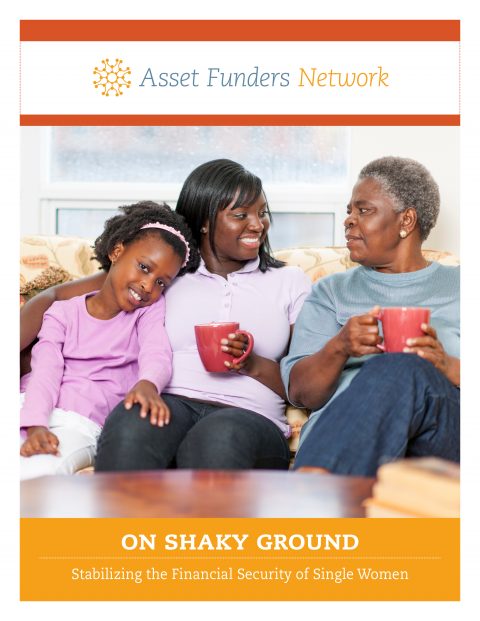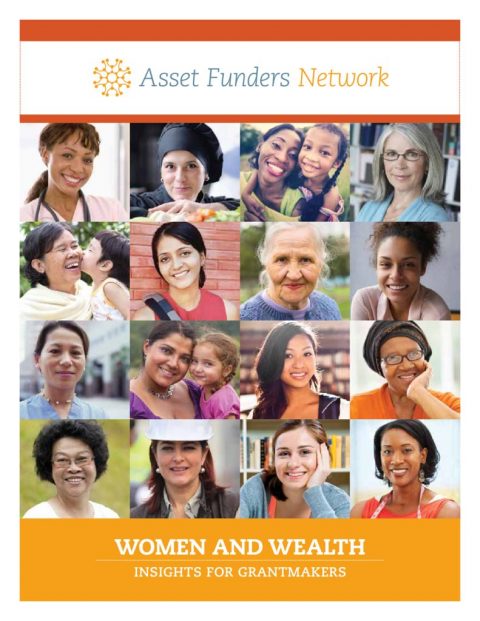AFN’s latest report, in collaboration with the Closing the Women’s Wealth Gap (CWWG) and the Insight Center for Community Economic Development reveals the current economic reality for millennial women and the primary drivers contributing to their wealth inequities. The report, Clipped Wings: Closing the Wealth Gap for Millennial Women is the second in a series of publications that builds off AFN’s 2015 publication, Women & Wealth, exploring how the gender wealth gap impacts women.
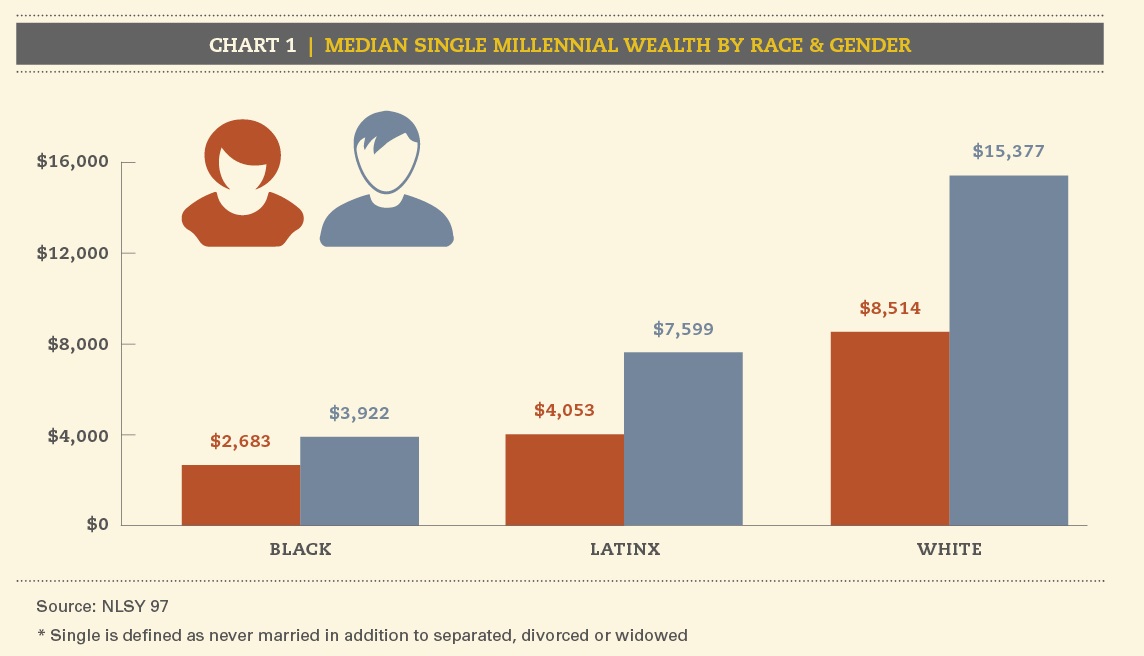 Millennial women (born between 1980 and 1997) represent 31.5% of the female population in the U.S. yet they do not benefit from many economic policies and systems designed by, and built to meet the needs of, men as primary breadwinners. Clipped Wings illustrates how despite important gains in college attendance rates and career opportunities, millennial women’s wealth lags behind that of men. The median wealth holdings of single millennial men is still 162% greater than single millennial women.
Millennial women (born between 1980 and 1997) represent 31.5% of the female population in the U.S. yet they do not benefit from many economic policies and systems designed by, and built to meet the needs of, men as primary breadwinners. Clipped Wings illustrates how despite important gains in college attendance rates and career opportunities, millennial women’s wealth lags behind that of men. The median wealth holdings of single millennial men is still 162% greater than single millennial women.
Millennial women came of age during the Great Recession, the rise of mass incarceration, unprecedented student debt levels, and changing workforce dynamics. All of these factors contribute to the fact that millennial women are 37% more likely than Generation Xers (those born between 1965 to 1984) to be living below the federal poverty line and are more likely to be underemployed or unemployed than previous generations. Additionally, immigrant millennial women, particularly Latinx women, are often key financial contributors to their parents and extended families, which directly impacts their economic stability.
While Clipped Wings confirms that more research is needed to understand the full complexity of issues facing millennial women, this new brief demonstrates how there is a unique opportunity for philanthropy to support and pioneer groundbreaking work that can lead to a more economically just and inclusive society. Clipped Wings leaves no doubt that putting women at the center of future policy decisions and reimagining how our systems operate is the way to ensure greater economic prosperity for all future generations.
Read now to better understand the specific challenges facing millennial women and the strategies available to grantmakers guide future investments.
